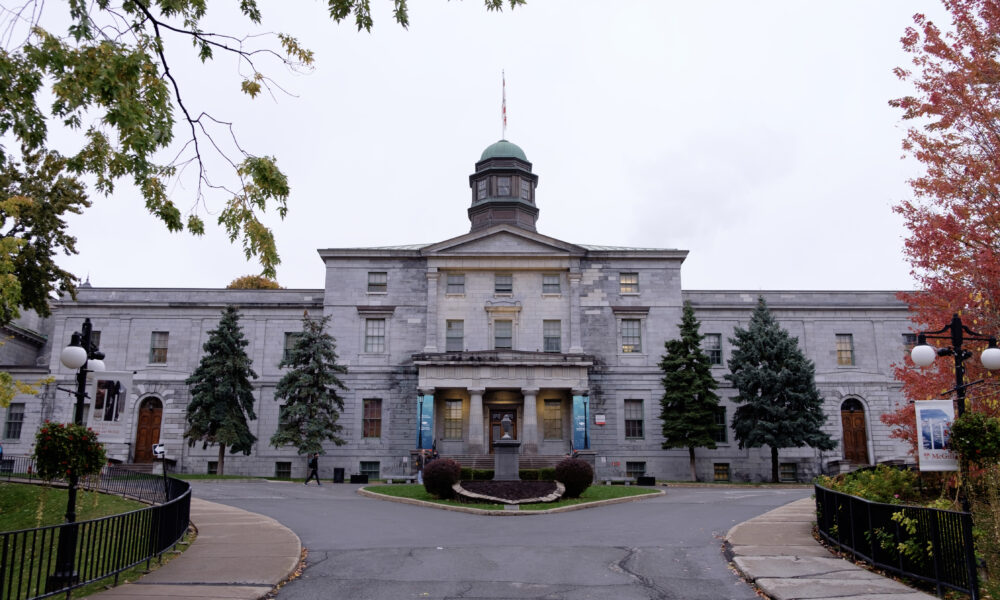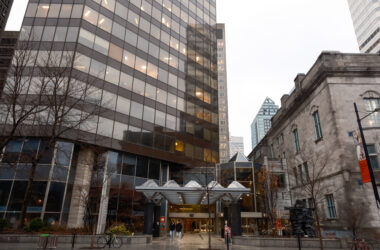On the evening of Wednesday, Oct. 25, the Students’ Society of McGill University (SSMU) held a town hall to discuss the Quebec government’s proposed tuition increases for out-of-province students. Students and organizers voiced concerns over the policy’s impacts on access to education and quality of learning and discussed ways to mobilize McGill’s population to resist the price spike.
SSMU aimed to gain insight into students’ opinions on the tuition hikes that they will use to inform how they approach subsequent organizing. SSMU Vice President (VP) External Liam Gaither spoke on the priorities that the student union will have going forward in mobilization, such as focusing on working with other Quebec university student unions, after the event.
“Our priorities are [to] continue to keep good solidarity with the student unions that are affected by this, to continue to work on building a common student front, because francophone students are heavily mobilized and passionate about accessible education,” Gaither said to The Tribune. “And making sure that our tactics […] whatever we decide to employ as an association,line up with the student membership’s view, as well as [having] some actual feasibility and achievability to them.”
The event drew around 40 students, including certain SSMU executives, and was moderated by Gaither and Alex O’Neill, U2 Arts, an organizer of the Blue Fall Protest on Monday, Oct. 30. The town hall comes after SSMU and the Concordia Student Union (CSU) put out a joint press release on Oct. 19, condemning the proposed increases, citing that they impede the human right of “universally accessible post-secondary education.”
Attendees discussed several issues, including criticism that the policy heightens economic barriers to post-secondary education and will increase student debt. Many students argued that the negative financial impacts of this policy on McGill would degrade the university’s quality of education and could result in the permanent closure of smaller departments.
“For me, having to pay for higher education is a problem, already. I don’t think people should have to pay to go to university.” Chloé Hugla, U3 Arts, said. “Just increasing tuition is going to hurt people […] that have less money, [not letting] them come to McGill.”
After some attendees highlighted the potential damage to McGill’s prestige, O’Neill reiterated the importance of promoting solidarity and balancing the focus between the policy’s impacts at McGill and beyond it.
“That point of view can lead to something very exclusionary.” O’Neill said during the meeting. “We need to balance those aspects and the greater good for access to education, and access to education from province to province.”
The town hall included a brief presentation on the history of student protests against tuition raises in Quebec by Adam Semergian, a first year Concordia student and communications officer with Coalition de Résistance pour l’Unité Étudiante Syndicale (CRUES). Semergian spoke mainly about the 2012 protests against a proposed university tuition increase under premier Jean Charest.
Following Semergian’s presentation, Gaither highlighted the red square as a symbol of student mobilization against tuition hikes popularized in 2012. Gaither and O’Neill encouraged attendees to pin the small squares of fabric onto themselves to raise awareness and situate their efforts in a longer history of student resistance against tuition increases in Quebec.
“This tuition hike is a reminder of [the 2012 protests] in some ways, and we need to pick up where things have been left off and fight for affordable education once again,” Gaither said.
Vikram Nathan, U3 Science, and president of the McGill Biology Student Union, talked to The Tribune after the town hall and underscored the potential for unity across different backgrounds, disciplines, faculties and schools in opposing the policy. Nathan expressed hope, looking both to the past and the future.
“I just think it’s up to us to actually take concrete steps, like the Blue Fall protest that’s about to happen, to address this,” Nathan said. “I think, also, it was eye opening to hear about the history of this collective action callback and the fact that this isn’t actually that unprecedented. We can advocate for ourselves and we will do it again.”









